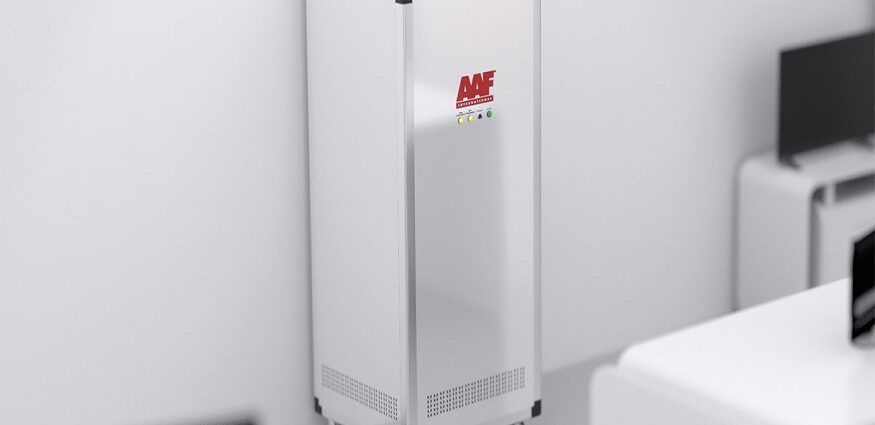It’s critical to maintain indoor air quality, especially in business settings where many people congregate daily. An air purifier is an essential tool for maintaining clean, allergy- and pollutant-free air. However, it might be challenging to select an energy-efficient commercial air purifier that balances performance and power consumption, given the abundance of options available. You can make an informed decision and lower your energy expenses and carbon footprint by being aware of the elements that affect energy efficiency.
Determine the required size and power.
For optimal effectiveness, the air purifier’s size should correspond with the space in which it will be utilised. Selecting a purifier that is too big for a small area could lead to wasteful energy use, and an underpowered device might find it challenging to filter the air adequately. The Clean Air Delivery Rate (CADR), which gauges how rapidly the air purifier can clean a room, is an important consideration. A higher CADR unit is required for bigger commercial premises; however, this must be balanced against energy consumption. Select a model that offers sufficient coverage without straining excessively or using excessive power.
Seek for fans with adjustable speeds.
A commercial energy-efficient air purifier with different fan speeds is a must. Many purifiers work best at lower settings, which consume less energy and preserve high air quality. When full power isn’t required, such as when the room is empty, or the pollution level is reduced, having the ability to change the fan speed helps you save energy. Lower speeds preserve an equilibrium between performance and energy efficiency, while higher speeds can be saved for peak periods. This adaptability is essential for maximising electricity consumption and air quality.
Select a smart or automated system.
Energy efficiency can be significantly increased by using air purifiers with automation or smart feature integration. Certain versions are engineered to automatically modify their settings in response to pollution levels and check the air quality in real-time. With the help of this feature, the purifier will only run at maximum efficiency when essential, saving energy when the air is cleaner. Automated mechanisms guarantee that your commercial air purifier operates at peak efficiency all day without requiring any changes. You may use cleaner air without worrying about excessive power consumption by purchasing a purifier with these features.
Verify the type of filter and the replacement frequency.
The energy efficiency of an air purifier is also influenced by the kind of filter it uses. Although HEPA filters are good at catching airborne particles, they can clog with time and require more effort and energy from the purifier. Selecting a model with durable, maintainable filters contributes to reduced energy consumption. Reusable or washable filters are available for some purifiers, which can further reduce energy expenses related to disposal and replacement. Consider the frequency of filter replacements and the purifier’s ability to send reminders to help with timely maintenance. Maintaining the cleanliness and upkeep of the filters guarantees that the purifier operates effectively and consumes minimal energy.
Steer clear of overly complicated features.
Although it may be tempting to select an air purifier with a tonne of extra functions, many of them can add to energy usage without making a noticeable difference in the quality of the air. Look for models that put an emphasis on energy saving by utilising simplified features that are optimised for best results. Steer clear of electronics that have needless additions that increase power consumption without adding much value. In business settings, simple, well-designed purifiers are more dependable and energy-efficient when air purity is the primary priority.
Conclusion.
A business air purifier’s energy efficiency depends on several parameters, including filter maintenance, customisable speeds, and size. Choosing a unit with intelligent features and the appropriate coverage for your area will help you save energy costs while maintaining clean, healthy air. You can choose an air purifier that satisfies your requirements for air quality and your environmental objectives by putting an emphasis on effectiveness and usability.

